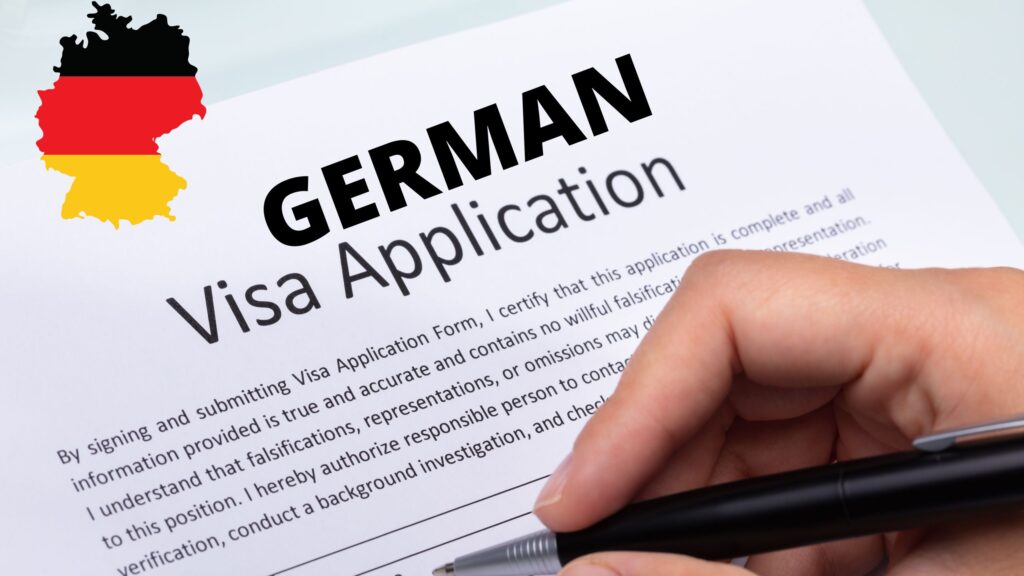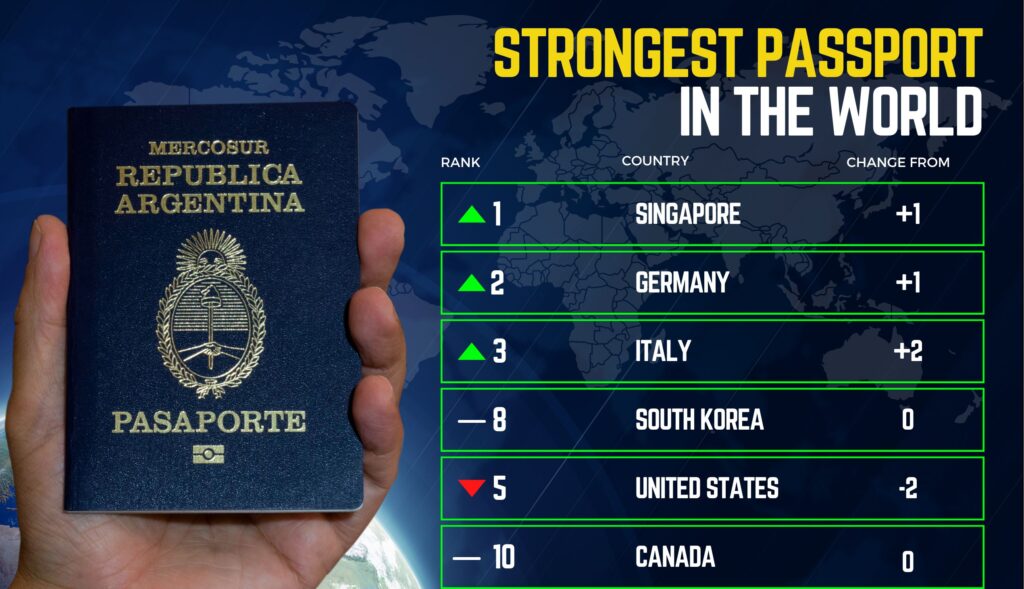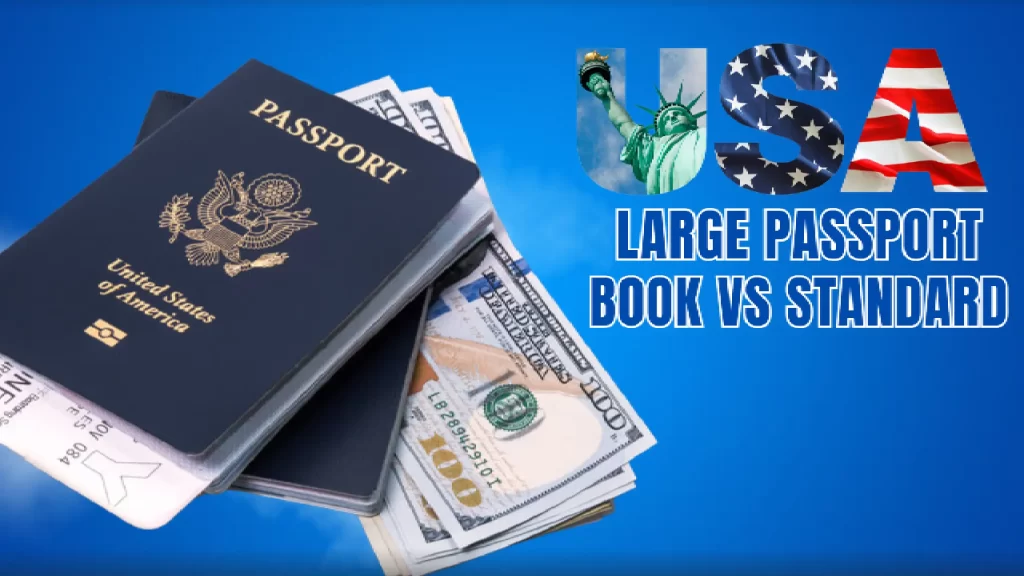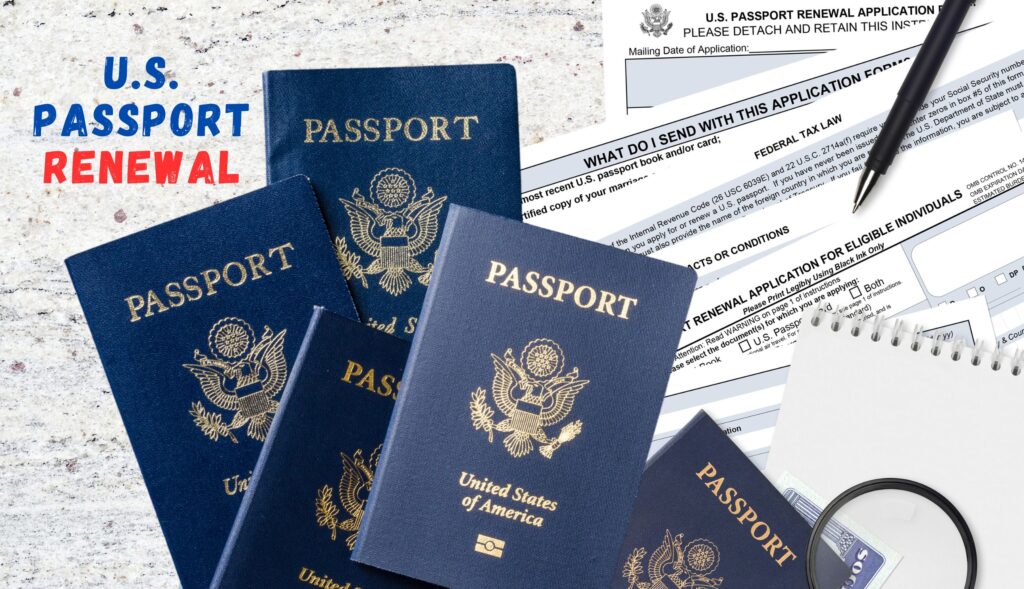German visa application process is a key step toward making your dream trip, career, or studies in Germany a reality. Planning to explore the vibrant culture as a tourist, advance your career with a work visa, or immerse yourself in the country’s academic offerings as a student, the process is designed to cater to various needs. Requirements, documents, and timeline can make the journey smoother, ensuring that your application is successful. Apply for your German visa with confidence and take the first step towards an unforgettable experience in Germany.
Importance of the German Visa Application Process
Visa application process is a important step for anyone wishing to enter Germany, as it determines whether or not you are permitted to travel into the country. Visa approval ensures that your trip complies with Germany’s immigration laws, allowing you to legally enter and stay within the country. Without the correct visa, you could be denied entry at the border, causing delays or potential cancellations of your plans.
Offers various visa types depending on the purpose of your visit, each with specific requirements to meet. Planning a short stay, pursuing career opportunities, or furthering your education, the right visa is essential to ensure your travel experience goes smoothly.
Types of German Visas
Provides a range of visa options to suit various travel purposes, whether you’re exploring the country for a short-term visit, advancing your career, or pursuing studies. Each visa type comes with its own set of requirements tailored to your stay’s purpose and length. Discover the different types of German visas, from the Schengen visa for short visits to the national visa for longer stays, helping you choose the right one and ensure a smooth application process.
1. Schengen Visa (Short-Stay Visa)
The Schengen Visa is for short stays in Germany and other countries in the Schengen Area. This visa lets you stay up to 90 days within a 180-day period. It is mostly used for:
- Tourism
- Business trips
- Family visits
- Short training or language courses
Who can apply?
Anyone from a non-EU/EEA country who wishes to stay for less than 90 days needs a Schengen Visa. Travel to other Schengen countries with the same visa.
Documents needed may include:
- A valid passport
- Travel insurance
- Proof of accommodation and funds
- Purpose of the visit (e.g., invitation letter, travel plan)
2. National Visa (Long-Stay Visa)
The National Visa is for stays longer than 90 days. This type of visa is also known as a D-Visa. It is required for:
- Studying in Germany
- Working or finding a job
- Family reunification
- Long-term training or research
If you’re planning to live, work, or study in Germany, you’ll need to apply for a National Visa through the German embassy or consulate in your home country.
After arrival:
Once in Germany, you must register your residence and apply for a residence permit at the local immigration office.
Choosing the Right Visa
The type of visa you need depends on your reason for traveling and how long you plan to stay:
- Short visit (less than 90 days): Schengen Visa
- Long stay (more than 90 days): National Visa
Applying for the correct visa is important to avoid delays or issues during your travel.
Who Needs a Visa to Enter Germany?
Citizens of non-EU/EEA countries
If you’re from a non-European Union or non-European Economic Area country, you usually need a visa to enter Germany. This applies whether you’re traveling for tourism, business, or to study.
Exemptions
Citizens from countries like the USA, Canada, Australia, Japan, South Korea, and some others can enter Germany without a visa for up to 90 days. If they want to stay longer, they must apply for a National Visa.
German Visa Application – Choose Which One is Perfect for You
Planning a vacation, aiming to start a new job abroad, or pursuing higher education in a foreign country, our visa application services cover all your needs. We provide step-by-step support for all major visa types—Tourist, Work, and Student—ensuring a smooth and successful process.
Tourist Visa Application for Germany
What is a Tourist Visa?
Tourist visa, often categorized as a short-stay visa, allows an individual to enter a foreign country for a temporary period, primarily for leisure, sightseeing, or visiting family and friends. In the European Union, this type of visa is known as a Schengen tourist visa and permits travel within the Schengen Area, which includes 27 European countries.
Duration and Validity
Standard Schengen tourist visa is typically valid for up to 90 days within a 180-day period. This means you can stay in one or multiple Schengen countries for up to three months, but you must leave the Schengen zone once the 90-day limit is reached. Some tourist visas are single-entry, while others may be multiple-entry, depending on the issuing country and the applicant’s travel purpose.
Eligibility Requirements
Obtaining a tourist visa is a formal process that requires you to meet specific eligibility criteria. Authorities want assurance that you are visiting for the right reasons and that you will return to your home country once your visit ends.
1. Financial Means
Applicants must prove they have sufficient funds to cover the entire stay. This can include bank statements, income tax returns, payslips, and a letter from your employer if applicable. For a German visa application, German authorities expect a minimum of €45 per day per person, though this can vary.
2. Travel Insurance
Travel health insurance policy is mandatory. The policy should cover a minimum of €30,000 in medical expenses and be valid throughout all Schengen countries. Insurance must cover any emergency medical needs, hospitalization, and repatriation.
3. Return Ticket
Proof of a round-trip flight reservation or a return ticket is essential. It shows your intent to leave the country within the visa’s validity period.
4. Proof of Accommodation and Itinerary
You must provide hotel bookings, an invitation letter from a host (if staying with family/friends), or proof of sponsorship. A detailed itinerary outlining your travel plan, destinations, and activities also strengthens your application.
5. Other Supporting Documents
Some embassies may require:
- Travel history (previous visas, entry/exit stamps)
- Language proficiency proof if visiting a country where language skills are expected
- Ties to your home country, such as property ownership, family, or ongoing employment
Documents Needed for a Tourist Visa
Comprehensive list of documentation is critical to a successful tourist visa application:
1. Valid Passport
- Must be valid for at least 3 months beyond the date you intend to leave the Schengen zone
- Must have at least two blank pages
- Should not be older than 10 years
2. Visa Application Form
- Accurately filled and signed
- Most countries, including Germany, offer downloadable or online forms through official consulate or VFS Global websites
3. Biometric Data
- Fingerprints and digital photographs are often collected during your appointment. If you’ve previously submitted biometrics within the last 5 years, you may be exempt.
4. Proof of Financial Resources
- Recent bank statements (last 3-6 months)
- Salary slips
- Income tax returns
- Sponsorship letter, if someone else is funding the trip
5. Travel Itinerary
- Include flight bookings, daily travel plans, and any pre-booked tours or excursions
6. Proof of Accommodation
- Hotel reservations
- Invitation letter with address and ID proof from your host
- Airbnb or other verified private rental confirmations
Application Process for a Tourist Visa
Whether you’re applying for a French holiday or a German visa application, the steps are generally the same with minor variations.
Where to Apply
- Embassy or Consulate of the country you intend to visit
- Visa Application Centers (e.g., VFS Global) authorized to process applications
For Schengen visas, apply at the consulate of the country that is your main destination (where you will spend the most days), or the first point of entry if staying in multiple countries for equal durations.
Step-by-Step Application Process
- Wait for Processing: Track your application online if available.
- Determine Visa Type: Ensure you need a tourist visa and not a business or student visa.
- Book Appointment: Via the embassy’s official site or a VFS center.
- Fill Application Form: Accurately complete it and gather your supporting documents.
- Pay Visa Fee: Usually non-refundable.
- Attend Appointment: Submit documents, biometrics, and attend an interview if required.
Visa Fee and Processing Time
Visa Fee Structure
- For a Schengen tourist visa: €80 for adults, €40 for minors (6-12 years), and free for children under 6.
- Some countries may offer discounted or waived fees under bilateral agreements.
Processing Time
- Standard processing time: 15 calendar days
- During peak seasons, it may take up to 30–60 days
- German visa applications might require additional review time, especially if supporting documents need verification
Applying for a tourist visa may seem like a bureaucratic challenge, but with proper planning and accurate documentation, the process can be smooth and successful. On a dream trip to the Eiffel Tower or submitting your German visa application to explore the castles of Bavaria, understanding the requirements is key to a stress-free travel experience. Begin your journey with this checklist, and you’ll be stepping onto foreign soil in no time.
Work Visa Application for Germany
Germany has long been a leading destination for skilled professionals looking to expand their career opportunities abroad. The country’s strong economy, excellent infrastructure, and high demand for qualified workers in various sectors have made it a top choice for foreign employees. If you’re looking to work in Germany, you will need a work visa, and the process might vary depending on your qualifications and the type of job you’re applying for.
Germany has a range of work visas designed to meet the needs of different categories of foreign workers. Highly skilled, looking for a job, or have a job offer, there is a visa option tailored for you. The primary work visas are:
1. Skilled Workers Visa
This visa is for foreign professionals who have the necessary qualifications and experience to work in Germany. It is designed to fill positions that are in high demand in the German labor market.
2. EU Blue Card
The EU Blue Card is a work visa aimed at attracting highly skilled non-EU nationals. This card provides a fast track to permanent residency in Germany and is an excellent option for individuals with advanced degrees and high-level professional experience.
3. Job Seeker Visa
The Job Seeker Visa allows you to enter Germany to search for a job. With this visa, you can stay in Germany for up to six months to find employment. Once you find a job, you can apply for a work visa without leaving the country.
Germany’s Employment Sectors and Demand for Foreign Workers
Germany’s labor market is diverse, with a strong demand for foreign workers, particularly in sectors such as:
- Engineering (mechanical, electrical, civil)
- Information Technology (software developers, IT specialists)
- Healthcare (doctors, nurses, medical staff)
- Skilled Trades (electricians, plumbers, carpenters)
- Science and Research (biotechnology, physics, chemistry)
- Finance and Business (financial analysts, accountants)
Germany’s aging population and low unemployment rate in some sectors have created a skills shortage, which is why foreign workers are so highly valued. The government encourages foreign professionals to apply for work visas to meet the demand in these critical sectors.
Eligibility Criteria for a Work Visa
To qualify for a work visa in Germany, applicants must meet certain requirements. These requirements vary depending on the type of visa, but generally include the following:
1. Minimum Qualifications and Professional Skills
For the Skilled Workers Visa, applicants must have a relevant degree or equivalent professional qualifications. This can include vocational training, university degrees, or recognized certifications in specific fields. For highly specialized jobs, a German employer may also consider work experience as a substitute for formal qualifications.
2. Recognition of Foreign Qualifications (Qualification Equivalency)
Germany requires that foreign qualifications be recognized. If you completed your studies or training outside of Germany, you may need to have your qualifications evaluated to determine their equivalency to German standards. This can be done through a recognition procedure by the German authorities or professional bodies.
3. Employment Contract or Job Offer from a German Employer
Key requirement for obtaining a work visa is having a confirmed job offer from a German employer. The job must match your qualifications, and the employer may need to prove that no suitable candidates from within Germany or the EU were available for the position.
Documents Required for Work Visa Application
To apply for a work visa in Germany, you will need to provide the following documents:
- Valid Passport: Your passport must be valid for at least six months beyond your intended stay.
- Visa Application Form: Complete the visa application form and sign it.
- Proof of Job Offer: You must submit proof of a signed employment contract or a formal job offer from a German employer.
- CV/Resume: A detailed curriculum vitae outlining your education, work experience, and professional qualifications.
- Academic Qualifications: Provide copies of your academic degrees, diplomas, and certificates.
- Professional Experience: Documentation of your work experience in your field.
- Health Insurance: Proof of health insurance coverage in Germany, which is a mandatory requirement.
- Accommodation Proof: Evidence that you have accommodation arrangements in Germany, whether through a lease agreement, hotel booking, or a letter from your employer.
Application Process for a Work Visa
The process of applying for a work visa for Germany can seem daunting, but it is straightforward if you follow the necessary steps.
Step 1: Gather Documents
Start by collecting all required documents, including your job offer, qualifications, and health insurance. Make sure to have both original copies and certified translations of documents not in German.
Step 2: Submit Your Application
Submit your visa application to the German consulate or embassy in your home country. You may be required to schedule an appointment and pay the visa application fee at this stage.
Step 3: Wait for Processing
After submitting your application, the consulate will process your documents. This can take anywhere from a few weeks to a couple of months, depending on the visa type and workload of the embassy.
Step 4: Receive Your Visa
Once your application is approved, you will receive a visa allowing you to travel to Germany. After you arrive in Germany, you may need to register with local authorities and obtain your residence permit.
How to Apply for the EU Blue Card
The EU Blue Card application process is similar to the Skilled Worker Visa. To apply for an EU Blue Card, you will need to meet specific requirements, including holding a recognized university degree and a job offer with a salary above a certain threshold (currently around €56,800 annually, or €44,304 for shortage occupations).
How to Apply for the Job Seeker Visa and Eligibility
Job Seeker Visa allows you to stay in Germany for six months while looking for a job. To apply, you need to provide proof of sufficient funds to support yourself during your stay and demonstrate that you meet the general qualifications for a skilled worker. Once you find a job, you can apply for a work visa from within Germany.
Visa Fee and Processing Time
Visa application fee varies depending on the type of visa, but generally ranges from €75 to €140 for most work-related visas. The processing time can also vary depending on the type of visa and the embassy’s workload. Typically, processing times are between 4 and 12 weeks.
Factors That Could Delay Approval:
- Incomplete Documents: Missing documents or incorrect information on your application form can delay the process.
- Qualification Recognition: If your foreign qualifications are not immediately recognized, it may take additional time for evaluation.
- Demand for Work Visa: In some high-demand fields, there might be a backlog, which could delay your application.
Post-Visa Arrival and Settlement
After receiving your work visa and traveling to Germany, you must follow certain steps to settle and start working legally.
1. Registration with Local Authorities
Within a few weeks of arrival, you must register with the local Bürgeramt (citizen’s office) in the city where you are living. This is a legal requirement for all foreigners living in Germany.
2. Work and Residence Permits
Once in Germany, you will need to apply for a work and residence permit. Your work visa will likely be linked to your employment contract, and the residence permit will allow you to live and work legally in the country.
3. Social Security and Taxation
Also need to register for social security, which includes health insurance, pension, and unemployment insurance. Germany has a strong social security system, and as an employee, you will contribute to this system.
Challenges and How to Overcome Them
While the work visa application process is designed to be accessible, applicants often face common challenges. These can include delays due to document issues, qualification recognition problems, or finding a job in the highly competitive German labor market.
How to Ensure the Success of Your Application:
- Complete Documentation: Ensure that all your documents are complete and translated as required.
- Job Search Preparation: If applying for the Job Seeker Visa, make sure you understand the job market and have realistic expectations for job searching.
- Professional Advice: If necessary, seek advice from a visa consultant or lawyer who specializes in German immigration law.
Germany can be a rewarding experience, offering access to one of the most robust economies in the world. By understanding the visa options available, meeting the eligibility criteria, and following the application process step by step, you can increase your chances of successfully obtaining a visa.
Student Visa Application for Germany
Germany is renowned for its world-class education system, attracting thousands of international students each year. For students wishing to study in Germany, obtaining a student visa is a important step. Provides the different types of German student visas, eligibility requirements, documents needed, and the application process. It also highlights why Germany is a top destination for international students, including the benefits of living and studying there.
Different Types of German Student Visas
Germany offers various types of visas for international students, depending on the purpose of their stay:
- Student Visa (Visum für Studienzwecke): This is the standard visa for students who have already been accepted into a recognized German university. It allows students to stay in Germany for the duration of their course. The German visa application for this visa is required if you are planning to study in Germany for a degree program.
- Student Applicant Visa (Visum zur Studienbewerbung): This visa is for individuals who are still in the process of applying to universities in Germany. It allows students to stay in Germany while they complete their application process and attend interviews or take entrance exams.
- Language Course Visa (Visum für Sprachkurse): If you wish to learn German before applying for university, a language course visa is required. This visa allows you to stay in Germany for a specified duration while attending a language course.
Why Germany is a Top Destination for International Students
Germany has become a preferred destination for international students for several reasons. First and foremost, the country offers a high standard of education, particularly in fields such as engineering, technology, business, and the sciences. Many German universities rank among the best in the world.
Germany is home to a number of low-cost or even free public universities, which makes studying there more affordable compared to other countries. International students benefit from Germany’s strong economy, which provides ample internship and job opportunities for graduates.
Germany is known for its vibrant culture, rich history, and high quality of life. Students can enjoy living in cities with excellent public transportation systems, diverse cultural experiences, and a strong emphasis on work-life balance.
Eligibility Requirements for Student Visa
To apply for a German visa application for a student visa, you must meet certain eligibility requirements. These are:
- Proof of University Admission or Acceptance: Accepted into a recognized German university or a preparatory course. This acceptance must be documented and presented as part of your visa application.
- Financial Proof: To demonstrate that you can cover your living expenses while studying in Germany. This can be done through various means, such as showing proof of a scholarship, a student bank account, or a financial guarantee from a sponsor.
- Health Insurance Requirements: Health insurance is mandatory for all international students in Germany. To provide proof of valid health insurance, either from a German provider or an internationally recognized one that is accepted in Germany.
Documents Required for Student Visa
When applying for a German visa application for a student visa, you will need to provide several documents to support your application. These typically include:
- University Admission Letter: A formal letter from the university or educational institution confirming your acceptance.
- Application Form: The completed visa application form, available from the German embassy or consulate in your home country.
- Passport: Valid passport, which should be valid for at least six months beyond your intended stay in Germany.
- Financial Proof: Evidence of sufficient funds to support your stay in Germany. This could include bank statements, scholarship certificates, or a financial guarantee from a sponsor.
- Proof of Accommodation: Need to provide proof of where you will be living while in Germany. This could be in the form of a rental agreement or a letter from a student housing provider.
- Health Insurance: Documentation showing that you have valid health insurance for the duration of your stay.
- Travel Plans: Need to provide your travel itinerary, including your intended date of arrival and departure from Germany.
Application Process for a Student Visa
Applying for a German visa application for a student visa involves several steps:
Step-by-Step Guide
- Prepare Your Documents: Before applying, ensure you have all the required documents in order. Double-check the specific requirements from your local German embassy or consulate, as they may vary depending on your country of residence.
- Submit Your Application: Submit your completed application form along with all required documents to the German embassy or consulate. Some consulates may require you to schedule an appointment in advance.
- Attend the Visa Interview: For an interview as part of the application process. This interview typically covers your reasons for choosing Germany, your study plans, and how you intend to support yourself financially during your stay.
- Wait for Approval: Once you’ve submitted your application and completed any necessary interviews, you will need to wait for the visa processing to be completed. This can take several weeks, so it’s important to apply well in advance of your intended travel date.
What to Expect During the Interview
During the visa interview, consular officers may ask questions to ensure that you meet the eligibility requirements and that your intentions for studying in Germany are genuine. Be prepared to answer questions about your academic background, your university choice, and your financial situation.
To prepare, practice answering these questions clearly and confidently. You should also bring all your documents and ensure that your application is complete to avoid any delays.
Visa Fee and Processing Time
Application fee for a German student visa typically ranges from €75 to €100, though fees can vary depending on your country of residence. This fee must be paid when you submit your application.
Processing time for a student visa generally takes 6 to 8 weeks, although this can vary depending on the consulate and the time of year. To avoid any delays, it’s important to apply as early as possible.
You can track the status of your visa application through the embassy or consulate’s website or by contacting them directly.
Post-Visa Arrival and Student Life
Once your student visa is approved and you arrive in Germany, there are several steps you must take to complete your registration:
- Registration at the Foreigners’ Office (Ausländerbehörde): Within a few days of your arrival in Germany, you must register at the local Foreigners’ Office to finalize your stay. This is a legal requirement, and you will be issued a residence permit that allows you to live and study in Germany.
- Finding Housing: Securing accommodation in Germany can be competitive, particularly in major cities. It’s advisable to start looking for housing as early as possible, either in student dormitories or private rental accommodations.
- Student Discounts: As a student, you will have access to various discounts, including reduced fares on public transportation, cheaper museum tickets, and discounts on products and services.
- Joining University Activities: German universities offer a wide range of extracurricular activities, including clubs, sports teams, and cultural events. These activities are a great way to meet new people and enhance your student experience in Germany.
Common Pitfalls to Avoid
When applying for a German visa application, there are a few common pitfalls that you should be aware of:
- Failing to Meet Financial Proof Requirements: One of the most common reasons student visa applications are rejected is failure to provide sufficient proof of financial resources. Make sure you meet the required financial criteria to avoid complications.
- Not Applying Well in Advance: It’s important to apply for your student visa as early as possible. Visa processing can take several weeks, and delays are common. To ensure you have enough time to sort out any issues, it’s best to apply as soon as you receive your university admission letter.
By understanding the application process and preparing well in advance, you can increase your chances of securing a student visa for Germany and enjoy your time studying in one of the world’s leading educational destinations. The German visa application process, though detailed, ensures a smooth transition for international students to study in this wonderful country.
Timeline for Application
Applying for a German visa, it’s essential to start the process early to avoid any delays. The recommended timeframe for submitting a visa application is 3 months before your planned travel date, particularly for tourist visas. Work and student visa applicants should aim to submit their applications 6 to 8 weeks in advance, as these visas often require additional documentation and processing time. Late applications may lead to rushed processing, risking errors or delays, and could even result in rejection if submitted too close to the intended travel date.
Language Requirements
For certain types of visas, particularly work and student visas, having a basic knowledge of the German language is often required. German authorities may request a B1 level certification (intermediate level) for most work and study visa applications, especially for professions requiring direct interaction with the public. Language courses that are recognized by German consulates or educational institutions, such as those offered by Goethe-Institut, can support your application. If you’re applying for a tourist visa, language proficiency is generally not a requirement.
Financial Considerations
One of the most critical aspects of applying for a German visa is proving your financial stability. Applicants must show they can support themselves during their stay in Germany. For tourist visas, a minimum of €45 per day is required for living expenses. For student visas, students must demonstrate sufficient funds to cover tuition and living costs, typically amounting to around €10,236 per year. Financial proof can include bank statements, sponsorship letters, or affidavits of support. It’s also important to understand the specific proof of funds that the consulate expects. Failing to provide sufficient financial documentation can result in visa refusal.
The German visa application process is essential for those planning to visit Germany for tourism, business, study, or family purposes. The necessary documents, application steps, and common challenges can help ensure a smooth and successful visa application experience.
FAQs
What documents are required for a German visa application?
To apply for a German visa, you’ll need a valid passport, completed visa application form, recent passport-sized photos, proof of accommodation, travel itinerary, travel insurance, proof of sufficient financial means, and additional documents based on the type of visa (tourism, business, study).
How long does it take to process a German visa?
The processing time for a German visa generally takes between 7 to 15 days. However, it’s recommended to apply at least 3 to 4 weeks before your planned travel date to avoid any delays, especially during peak travel seasons.
Can I apply for a German visa online?
While the application form can often be filled out online, you must submit your documents in person at a German consulate or visa center. Some countries may offer a simplified online application process for certain visa types, but in-person submission is usually required.
What are the fees for a German visa application?
Visa fees for a short-stay Schengen visa are typically around €80 for adults and €40 for children aged 6 to 12 years. Fees may vary depending on the type of visa and nationality. Some applicants may be exempt or eligible for reduced fees.
How do I track the status of my German visa application?
You can track the status of your German visa application by using the tracking system provided by the German consulate or visa center where you submitted your application. A tracking number is usually provided once your application is submitted.
What is the difference between a Schengen visa and a German national visa?
A Schengen visa allows you to travel to multiple countries within the Schengen Area, including Germany, for short stays (up to 90 days). A German national visa is for longer stays, such as for work, study, or family reunification, and is valid only for Germany.
Can I apply for a German visa if I have a criminal record?
Having a criminal record may affect your German visa application. However, each case is considered individually. If you have a criminal record, it’s essential to disclose it during your application process and provide any required documentation or explanations.
How early should I apply for a German visa?
It’s advisable to apply for a German visa at least 3 to 4 weeks before your intended travel date. In some cases, you can apply up to 6 months in advance, especially for long-term visas. Applying early allows for processing time and any potential delays.
What should I do if my German visa application is rejected?
If your German visa application is rejected, you will receive an official letter stating the reasons. You can appeal the decision or reapply with additional documentation to address the issues raised. It’s important to carefully review the reasons for rejection before taking further steps.
Is travel insurance necessary for a German visa application?
Yes, travel insurance is a mandatory requirement for a German visa application. The insurance should cover medical emergencies, hospitalization, and repatriation for the entire duration of your stay in Germany and the Schengen Area. The minimum coverage should be €30,000.










